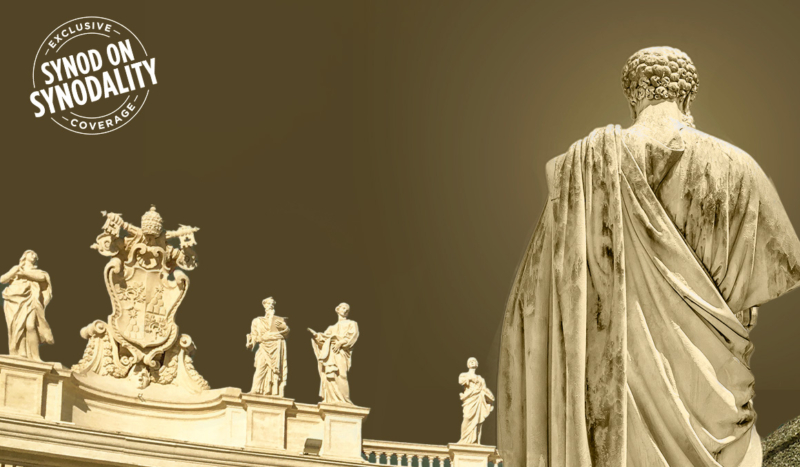
CV NEWS FEED // Delegates to the Synod on Synodality moved into the fourth and last segment of the synod on Wednesday, where they will discuss whether processes or institutions within the Church need to be changed to encourage synodality in the future.
Cardinal Jean-Claude Hollerich, General Relator of the Synod, said conversations for the rest of the synod will focus on five main topics: viewing the authority of Church officials as service to the faithful; common discernment among the faithful; examining the synodality of Church institutions; structures of organizations that group churches together; and the possibility of using the synod as experimentation for greater participation in the Church.
“They [the topics of conversation] are delicate because they touch the concrete life of the Church and also the growth and dynamism of the tradition: a wrong discernment could sever it [the life of the Church], or freeze it. In both cases [wrong discernment] would kill it,” Hollerich said at Wednesday’s general assembly.
Archbishop Gintaras Grusas, from Vilnius, Lithuania, said that it is important to focus on synodality’s relationship to evangelization during the last few meetings.
“As we continue to talk about what processes, structures and institutions are needed in a missionary synodal Church, we need to make sure that these do in fact assist the mission of bringing the Good News to those who are in need of salvation,” he said. “Synodality… must be at the service of the Church’s mission of evangelization and not become an end in itself.”
Fr. Timothy Radcliffe, OP, added that the process of changing Church processes and institutions is just another example in the Church’s history of adapting to better serve the spiritual needs of the faithful.
“Now we shall consider what new processes, institutions, and structures are needed,” he said. “These will not be solutions to management problems but fuller expressions of who we are.”
Radcliffe continued by asking what the specific needs of the faithful in today’s world are.
“What institutions do we need to express who we are as men and women of peace in an age of violence, inhabitants of the Digital Continent?” he asked.
Finally, Fr. Dario Vitali, Director of Dogmatic Theology at the Pontifical Gregorian Institute, said that the Church needs the space to practice synodality even after the synod concludes.
“A genuine exercise of synodality will allow for thoughtful considerations—with patience and prudence—on the necessary institutional reforms, decision-making processes that involve everyone, and an exercise of authority truly suitable for enabling the growth of a mature and participatory People of God,” he said.

